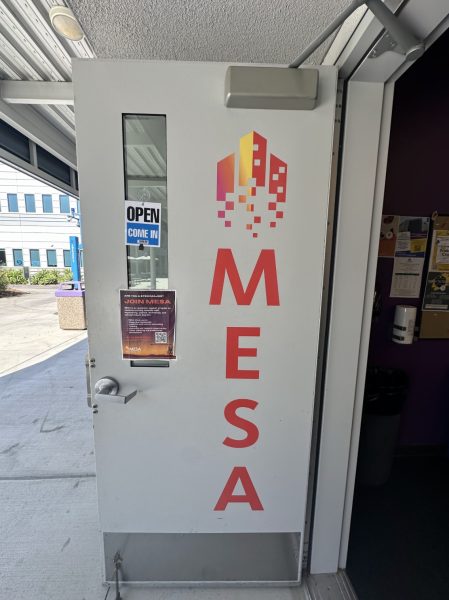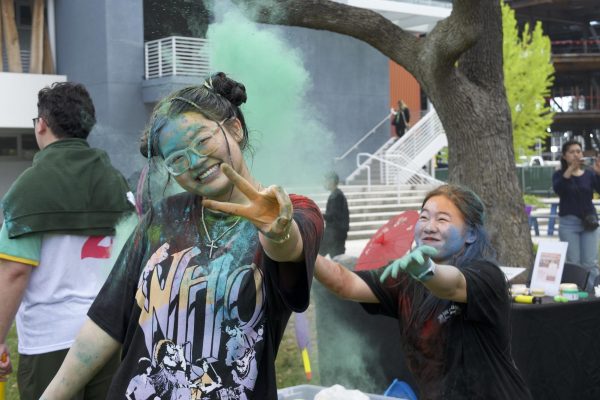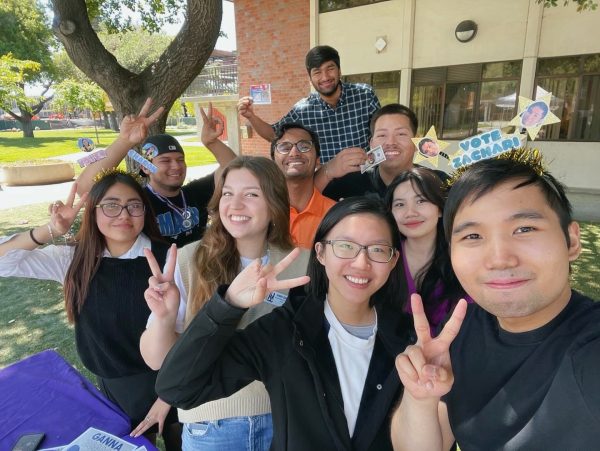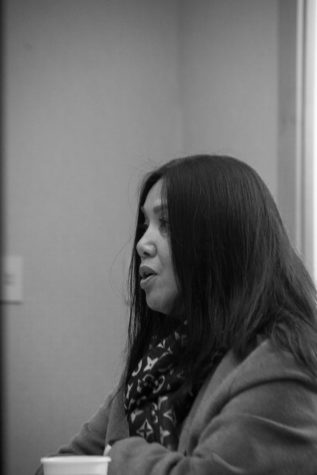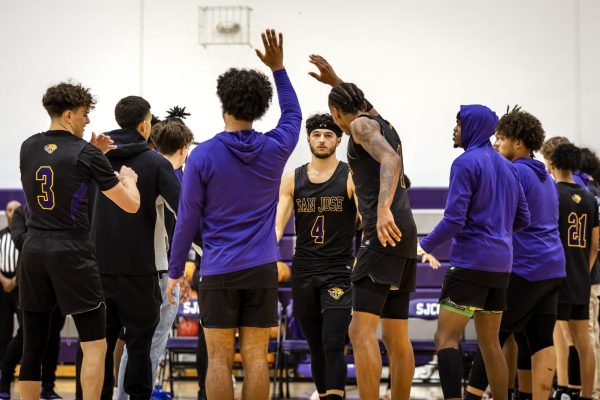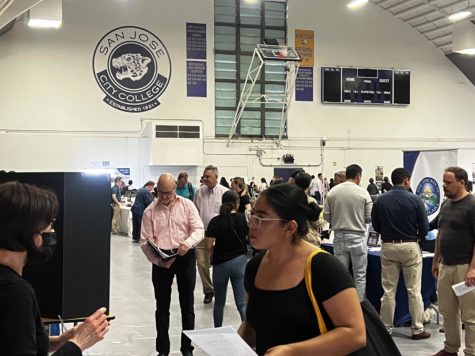Concerns over ASG breaking law
Advisors deny any infractions of open meetings rule
Illustration by Jason Torres Iraheta and Madison Wilber / Times Staff
The eight ASG members: Leif Benson (Top Left), Denim Sperisen (Top Middle), Skylar Alikoi Dy (Top Right), Vitumbiko Kambilonje (Middle Left), Mohamad Shaar (Middle Right), Javi Vallejo (Bottom Left), Xitlaly Martinez (Bottom Middle) and Valeria Graciela Herrera Vasquez (Bottom Right) allegedly violated The Brown Act of 1953 twice this semester. ASG has not yet made a public comment addressing their violation.
The Associated Student Government allegedly violated an open meetings law twice this month, adding to the ongoing scrutiny and confusion over the current dynamics of San Jose City College’s elected student government.
The alleged breach in law includes the Board sending a detailed email questioning ASG President Leif Benson’s ability to lead and asking him to resign, and a subsequent closed-door meeting away from the public to discuss the resignation demands on March 1.
The internal email requesting that Benson resign was sent by the entire ASG Board, who also attached their advisors, on Tuesday, Feb. 28. With a majority of the members discussing Benson’s performance privately, also known as meeting quorum, this became the first of two alleged violations of what’s known as The Brown Act of 1953.
“… ‘Meeting’ means any congregation of a majority of the members of a legislative body at the same time and location, including teleconference location …to hear, discuss, deliberate, or take action on any item that is within the subject matter of the legislative body,” a section of The Brown Act defines.
The City College Times interviewed David Loy, the First Amendment Coalition’s legal director, to consult on the legality of the actions taken by the ASG Board. FAC is a nonprofit organization in the Bay Area that supports media groups and individuals in navigating free speech laws.
“The law says if there is an issue involving the fitness for office or conduct of one of the members of the legislative body itself, that is something which must be discussed in an open and public meeting,” Loy said. “It cannot be discussed in closed session.”
The closed session that followed the Board’s weekly meeting on Wednesday, March 1, lasted over two hours with no member of the public allowed in, making it the second apparent violation of The Brown Act. After the private meeting, Benson disclosed to The Times that he would not resign, but neither the ASG nor Benson has made a public statement.
In both the ASG bylaws and constitution, The Brown Act is directly mentioned as a guide the Board must abide by.
“The reason for that is that the legislative body members serve the public,” Loy said. “They are accountable to the public.”
ASG advisor Juan Garcia declined to comment on the alleged violation of the Brown Act.
William Garcia, vice principal of student affairs, said he believed the letter did not break any law.
“I think any member, whether it’s a student, an officer, or community member, can ask any questions, can make any requests,” Garcia said. “It doesn’t mean that the request [for Benson’s resignation] will be honored. There is a process for that.”
In regards to the closed session meeting, Garcia said, “It [ASG] is a governing Board, so they do have the right to go into closed session … but they do then have to report out any action taken during closed session.”
No report was given after the closed session from ASG.
Blake Balajada, a faculty ASG advisor, also said he believed the email did not conflict with any governing documentation, including the constitution or bylaws.
“It sounds like the original question is, was there anything in conflict with laws or bylaws? No, I think it fits within [closed sessions],” Balajada said. “I think the bigger part of it was – where do these folks get a space or a time to just sort it out as human beings?”
Violations of The Brown Act can result in a district attorney or any member of the public asking for a Cease and Desist Letter or Cure and Correct Letter, Loy said.
Presenting the Board with a Cease and Desist Letter would state that the public has seen the legislative body perform alleged misconduct and the actions must be stopped immediately. If it does not stop, the body in question could be taken to court.
A Cure and Correct Letter would request that the legislative body retract their ‘action’ (in this case, requesting the President Benson’s resignation), and do it on the record. Action must be taken within the first 30 days for the legislative body to take legal action to ask the President to resign.
This is not the first time an ASG has broken The Brown Act at a California Community College, according to the Santa Barbara college newspaper, The Channel.
At Santa Barbara City College, the ASG allegedly violated the act in 2020 when they failed to post their meeting agenda at least 72 hours before the meeting.
After the campus newspaper reported the violation, SBCC’s ASG held a special meeting to form a public response to take accountability for their actions.
No public statement has come from SJCC’s ASG addressing the alleged violations at this time.
In their March 8 meeting, it was agendized in “New Business” that SJCC’s ASG should add a parliamentarian to help train the legislative body in bylaws and The Brown Act, despite denying allegations they violated the act.
Your donation will support the student journalists of San Jose City College. Your contribution will allow us to purchase equipment and cover our annual website hosting costs.


